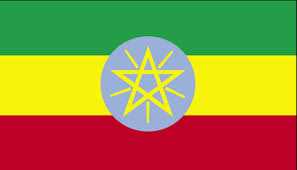The coffee sector is beginning to resemble the wine market, with buyers willing to pay a premium for crops that reflect local climates and harvesting techniques.
Stumptown Coffee Roasters from Portland, Oregon is one of a growing number of speciality coffee traders beating a path to Ethiopia in search of the world’s best beans.
“The flavours that you find in the cup are flavours that you can’t find anywhere else in the world… Combinations of floral and different types of fruits.
It’s essentially where everything began, so you have amazing evolutionary adaptation of the plant
“A really beautiful balance between liveliness and acidity. Good body. Good sweetness,” raves Adam McClellan, a green coffee buyer for the company.
McClellan’s use of language more often associated with viticulture is not mere pretence.
With more than 1,200 identified chemical compounds in coffee, connoisseurs argue that the flavours and aromas of the very best coffee are equal to those of the finest wine.
Cafe clientele around the world are enjoying the pleasures of a good cup of coffee and are willing to pay a premium for it.
“For consumers to have something that tastes quite different with those floral aromatics and really sweet interesting flavours, it allows them to really see coffee as being something other than an everyday cheap commodity,” McClellan insists.
The term ‘speciality coffee’ was coined in 1978 and refers to beans grown in climates that have a distinct and superior taste.
This is related to the winemaking concept of terroir, at the core of which is the assumption that the characteristics and qualities of individual wines are derived from local conditions.
Ethiopia, long considered the birthplace of Coffea arabica, is thought by many to have some of the best growing environments.
“It’s essentially where everything began, so you have amazing evolutionary adaptation of the plant,” says Phil Robertson, the co-founder of the Calgary-based Phil & Sebastian Coffee Roasters.
“The varietals have had so much time to adapt and that just gives them an incredible leg-up.”
High altitude beans
Gedeo Zone in southern Ethiopia is considered by some to be where the world’s best coffee is found.
Types like Sidama and Yirgacheffe – made popular by coffee giant Starbucks – grow there.
“The reason great coffee comes from here is because of its extremely high altitude,” Robertson explains, adding that the complex and dynamic flavours are due to the wide variation between day and night-time temperatures, which can double the length of maturation of the fruit.
But many traders say Ethiopian coffee has not yet reached its full potential in terms of quality and the volumes supplied to the speciality sector.
It is estimated that just 1% of Ethiopia’s coffee exports are sold as speciality coffee.
Robertson says he would like to see a 10-fold increase in the figure.
To achieve this, problems and inefficiencies in the processing and traceability need to be addressed.
The example of the Duromina cooperative – formed in south- west Ethiopia by about 100 of the country’s estimated one million smallholder coffee farmers – shows what a focus on quality could do for the industry at large.
Ansha Yassin, marketing manager at TechnoServe, explains that before the non-governmental organisation started working with Duromina in 2010, coffee from the area was fetching some of the lowest prices in country.
By improving agronomic practices, harvesting only the ripe, red coffee cherries and installing a wet mill, Duromina was able to sell its 71tn harvest of green coffee in 2012 for an average of $3.86 per pound – 65% above the average international price.
Traceability
One of the additional advantages Duromina has over other Ethiopian coffee is its traceability.
The ability to pinpoint a healthy, responsible and sustainable supply chain is highly prized in the speciality sector.
The Ethiopia Commodity Exchange (ECX), launched in 2008, transformed the way in which most Ethiopia coffee is traded.
This has been to the detriment of the speciality sector.
For the ECX, all coffee from Jimma is interchangeable, making it impossible to identify unique varieties.
By selling through the Oromia Coffee Farmers Co-operative Union, Duromina sells directly to roasters.
Under the ECX system, the farmer loses out.
Many of them are now switching to growing the stimulant khat because it gener- ates larger incomes.
















